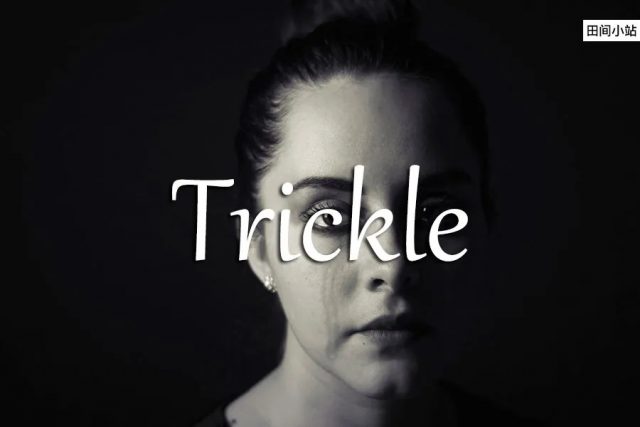本文经授权转载自微信公众号:田间小站

专八 托福 GRE
Trickle 是本周《经济学人》(2025年10月25日刊)标题为“Meet the real screen addicts: the elderly”一文中出现的一个单词:
Yet lately the publicly funded clinic has admitted a steady trickle of rather different patients.
从词源上来看, trickle 一词词源不详,可能是拟声而来,最早出现于14世纪末,用作动词表示“(使)滴、淌”,特别是“小股流淌”(flow in a small stream),通常缓慢且无力地流淌成一条细线。比如:
- 轻易的眼泪顺着他的面颊流了下来。
Facile tears were trickling down his cheeks.
从“缓慢且无力地小股流淌”这个概念出发, trickle 便被用来拓展指“(使)慢慢走、缓慢移动”,侧重指少量缓慢地或逐渐地到达或移动到某处。比如:
- 病人们开始缓步进入大厅。
Patients began trickling into the lobby. - 噩耗开始一点一点传出来。
The dire news started to trickle out. - 骚动的人群慢慢散去了。
The turbulent crowd trickled away.
用作名词时, trickle 除了自然表示“细流、涓流”以外,还常用搭配 trickle of sth 引申指如缓慢细流那般“稀稀疏疏、三三两两或零星缓慢来往的事物”。比如:
- 稀稀拉拉的订单
a slow trickle of orders - 源源不断的小额注资
a steady trickle of investment - 只有零星的几个顾客
only a trickle of customers
那么回到上面《经济学人》的句子,其句意也就是说:然而最近,这家由公共资金支持的诊所却源源不断收治了少量截然不同的患者。
